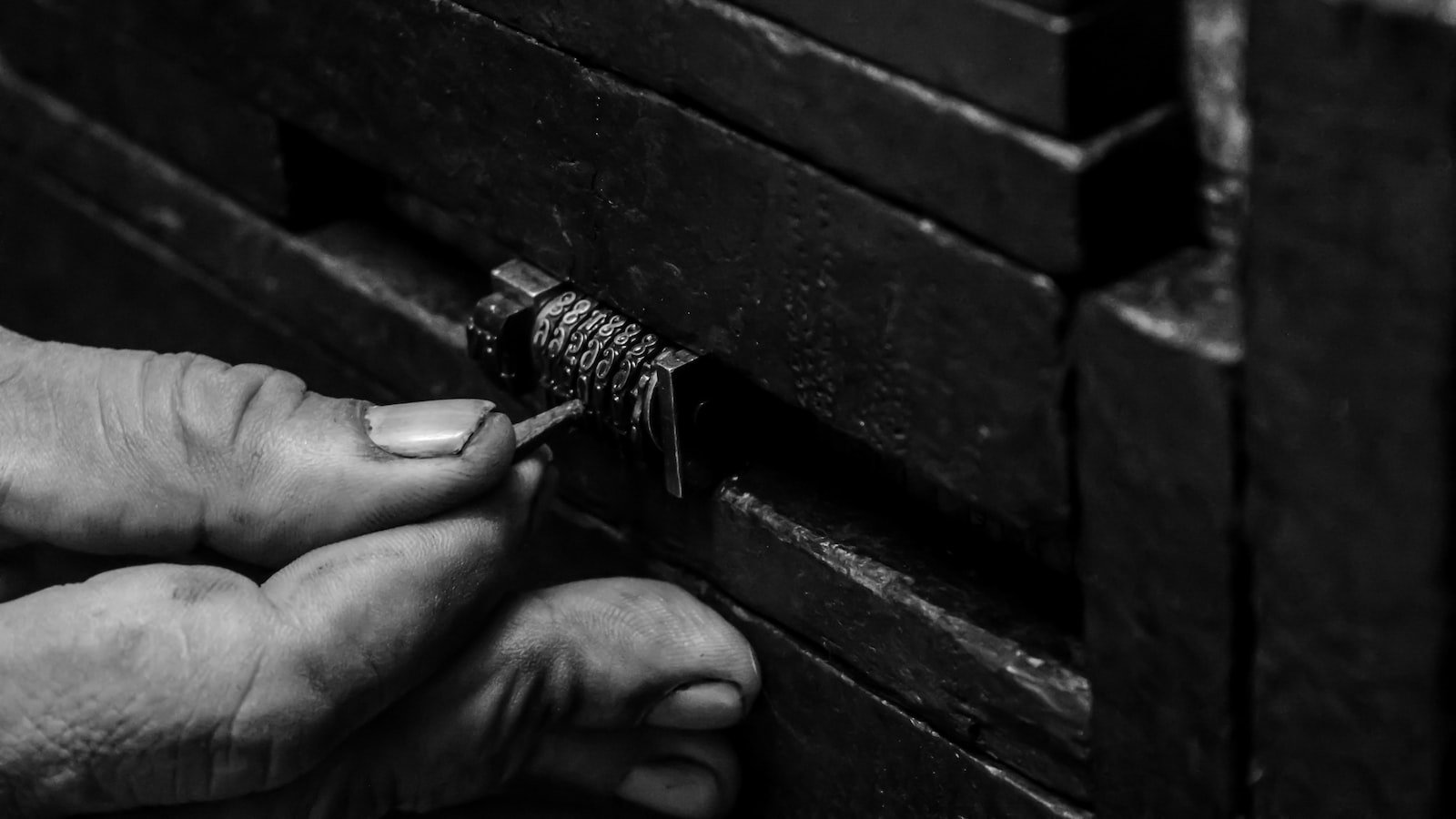Have you ever found yourself staring at an intriguing lock, wondering what mysteries lie behind it? For generations, the art of lockpicking, known as locksport, has captivated the curiosity of individuals who yearn to unravel the secrets concealed within these complex mechanisms. While traditionally considered a skill for adults, locksport has recently ignited a spark of interest among children seeking to dive into the world of lock manipulation. As this unconventional hobby gains momentum, it becomes indispensable to explore the essential do’s and don’ts to ensure a safe and educational locksport experience for young enthusiasts. From understanding the ethics of locksport to mastering technical skills, let us embark on a journey of unlocking knowledge, guiding our young ones to become responsible and knowledgeable locksport aficionados.
Table of Contents
- Unlocking the Possibilities: An Introduction to Locksport for Kids
- Navigating the Ethical Landscape: Do’s and Don’ts of Lockpicking as a Hobby
- Safety First: Guidelines for Kids Exploring the World of Locks
- Mastering Skills: Recommended Tools and Techniques for Junior Lockpickers
- Building Communities: Encouraging Responsible Locksport Practices Amongst Kids
- Q&A
- Wrapping Up

Unlocking the Possibilities: An Introduction to Locksport for Kids
Locksport may sound like something only adults would engage in, but it can be an exciting and educational activity for kids too! Unlocking the Possibilities introduces children to the fascinating world of locks, keys, and the art of picking locks safely and responsibly.
During our interactive workshops, kids will develop problem-solving skills, hand-eye coordination, and critical thinking abilities. They will learn about the mechanics behind locks and gain a deeper understanding of how they work. Through hands-on practice, they will experiment with various lock-picking tools and techniques, gradually becoming adept at opening a variety of locks.
This introduction to Locksport for kids is not only a fun and engaging activity, but it also encourages creativity and innovation. By learning how locks function and how they can be unlocked, children gain a unique perspective on security systems and develop a healthy skepticism about their effectiveness. It teaches them the importance of security design and how vulnerabilities can be identified and remedied.
Unlocking the Possibilities offers a unique way for kids to explore a field often considered reserved for adults. It promotes curiosity and problem-solving skills while instilling a sense of responsibility and ethics. Join us and unlock a world of possibilities for your child!

Navigating the Ethical Landscape: Do’s and Don’ts of Lockpicking as a Hobby
Lockpicking can be an intriguing and engaging hobby, offering a unique glimpse into the intricate mechanisms that safeguard our possessions. However, as with any hobby, there are ethical considerations that must be taken into account. To ensure that lockpicking remains a responsible and respectable pursuit, here are some do’s and don’ts to keep in mind:
Do’s:
- Obtain proper knowledge and training: Educate yourself about the legalities and ethics surrounding lockpicking. Seek guidance from experienced practitioners and trustworthy sources to ensure you are well-informed.
- Respect the boundaries: Limit your lockpicking activities to locks that you have explicit permission to pick. Avoid picking locks that might belong to others without their consent, as this can breach their privacy and potentially lead to legal consequences.
- Join a lockpicking community: Engage with fellow enthusiasts through clubs and forums. This will not only enhance your skills but also provide a platform to discuss ethical concerns and promote responsible lockpicking practices.
Don’ts:
- Engage in illegal activities: Never use your lockpicking skills to participate in any criminal or unauthorized activities. It is important to remember that lockpicking should only be pursued as a legal and ethical hobby.
- Compromise security: Avoid picking locks that are actively in use, such as those securing someone’s residence, vehicle, or place of work. Lockpicking should be viewed as an educational pursuit, not a means to invade others’ privacy or jeopardize their safety.
- Promote or glamorize illicit practices: Refrain from sharing or showcasing content that romanticizes lockpicking in an unethical or unlawful manner. Instead, use your passion for lockpicking to foster responsible discussions and raise awareness regarding security vulnerabilities.
By adhering to these guidelines, lockpicking as a hobby can serve as a platform for education, skill development, and ethical exploration. Remember, respect for the law, personal boundaries, and the privacy of others should always be at the core of this fascinating pursuit.

Safety First: Guidelines for Kids Exploring the World of Locks
Kids are naturally curious beings, always looking for new adventures and challenges. One fascinating world they may be eager to explore is the realm of locks. However, safety should always be the top priority when venturing into this exciting territory. Here are some essential guidelines to ensure your child’s safety while they embark on their lock exploration journey:
– Never attempt to pick or manipulate locks without proper supervision. Engage in this activity only under the guidance of a knowledgeable adult, such as a locksmith or experienced parent.
– Before diving into the practical aspects of lock manipulation, it’s vital for kids to develop a solid understanding of the mechanics behind locks. Encourage them to research and study the different types of locks, their functions, and key components.
– Emphasize the importance of ethical lock exploration and discourage any mischievous or unlawful behavior. Teach children to honor the boundaries between exploring locks as a hobby and respecting other people’s property.
– Remind kids to always ask for permission before practicing on any locks that do not belong to them, ensuring they are being respectful of other people’s personal belongings and privacy.
– Reinforce the significance of patience and persistence. Picking locks is a skill that requires time and practice to master. Encourage kids to cultivate these qualities and remind them that success does not come instantly.
With these guidelines in mind, children can safely and responsibly delve into the fascinating world of locks, satisfying their curiosity while learning valuable lessons along the way. Remember, in the realm of lock exploration, safety always comes first!
Mastering Skills: Recommended Tools and Techniques for Junior Lockpickers
Embarking on the journey of becoming a skilled lockpicker requires not only passion but also the right tools and techniques. As a junior lockpicker, it is crucial to equip yourself with the essentials that will enable you to tackle locks with finesse and precision. Here are some recommended tools and techniques to help you master your lockpicking skills:
1. Essential Tools:
- Tension Wrench: This tool is used to apply rotational pressure to the lock cylinder, mimicking the key’s turning motion.
- Lock Picks: An assortment of different picks, such as hooks, diamonds, and rakes, are invaluable for manipulating the lock’s pins or tumblers.
- Decoding Tools: These specialized tools, like plug spinners or key extractors, aid in decoding and repairing locks.
2. Technique Tips:
- Light Tension: Apply just enough pressure with the tension wrench to manipulate the lock pins without causing them to bind.
- Single Pin Picking: Master the art of individually lifting and setting each pin to gradually unlock the mechanism.
- Raking: This technique involves quickly and repetitively moving the pick within the lock to set multiple pins simultaneously.
- Practice, Practice, Practice: Lockpicking is a skill that requires practice and patience. Regularly challenge yourself with different locks to further refine your technique.
Remember, becoming a proficient lockpicker takes time and dedication. By using the recommended tools and applying the right techniques, you will develop the necessary skills to tackle various locks with confidence. Happy picking!
Building Communities: Encouraging Responsible Locksport Practices Amongst Kids
Locksport, the art of picking locks as a hobby, can be an intriguing and educational activity for kids. However, it is crucial to promote responsible and ethical practices within this community. By instilling a strong sense of moral values and emphasizing the importance of consent and security, we can ensure that young locksport enthusiasts engage in this hobby responsibly.
Here are a few ways we can encourage responsible locksport practices among kids:
- Educational workshops: Organize interactive workshops where experienced locksport enthusiasts can educate children about the technical aspects of lock picking. Emphasize the ethical implications and encourage participants to respect privacy and use their skills responsibly.
- Mentorship programs: Pair aspiring young locksport enthusiasts with trusted mentors who can guide them through the learning process. Mentors can instill responsible practices, promote ethical behavior, and provide valuable guidance to help kids navigate this hobby safely.
- Community events: Organize friendly competitions or lock-picking challenges within the local locksport community. These events can serve as platforms to reinforce responsible practices, offer educational opportunities, and encourage healthy competition in a supportive environment.
By investing in the development of young locksport enthusiasts, we can foster a community that prioritizes responsible practices and ethical behavior. Together, let’s build a community that thrives on knowledge sharing, healthy competition, and utmost respect for security and privacy.
Q&A
Q: Can children safely participate in the sport of lockpicking?
A: Absolutely! As long as they understand and follow safety guidelines and are supervised by responsible adults, lockpicking can be a fun and educational activity for kids.
Q: Should kids start with real locks or use practice locks?
A: It is highly recommended that children begin with practice locks specifically designed for beginners. This allows them to develop their skills and technique before attempting to pick real locks.
Q: Is it important for kids to seek permission before practicing lockpicking?
A: Yes, always! It is crucial for children to obtain explicit permission from the lock owner before attempting to pick any lock. Respecting other people’s property is a fundamental aspect of lockpicking ethics.
Q: Can lockpicking be a bonding activity between parents and children?
A: Absolutely, lockpicking can be an excellent bonding experience for parents and children. Using it as a teachable moment to discuss security, ethics, and problem-solving can create lasting memories and valuable lessons.
Q: What are some key safety precautions for kids involved in lockpicking?
A: First and foremost, kids must never attempt lockpicking without adult supervision. It is vital to ensure they have a clean workspace, wear safety goggles, and never pick locks that are currently in use.
Q: Are there professional organizations or societies that support kids in lockpicking?
A: Yes, there are organizations like the “Locksport International Youth League” that encourage and support children’s involvement in lockpicking, providing a platform for learning and sharing experiences.
Q: What is the importance of emphasizing ethics and responsible locksmithing techniques to kids?
A: Teaching kids about the ethical implications of lockpicking helps instill a sense of responsibility and respect for the craft. Emphasizing the importance of using lockpicking skills for legitimate purposes promotes a positive and lawful approach.
Q: What is the suitable age for kids to start lockpicking?
A: There is no strict age requirement, but typically kids who are around the age of 12 and older can comprehend the necessary safety guidelines and understand the ethical aspects involved in lockpicking.
Q: Should parents worry about their child becoming curious about unlawful activities?
A: Parents must establish open and honest communication with their children about the legal and moral aspects of lockpicking. By setting clear boundaries and discussing the importance of responsible usage, parents can alleviate concerns about curiosity turning into unlawful behavior.
Q: Can lockpicking enhance children’s problem-solving skills?
A: Definitely! Lockpicking not only improves children’s fine motor skills but also stimulates critical thinking and problem-solving abilities. It challenges them to analyze and understand complex mechanisms, thus enhancing their cognitive skills.
Wrapping Up
Unlock the door to the world of Locksport for your little ones, but before we wrap up this discussion, let’s recap the essential do’s and don’ts. Remember, our purpose wasn’t merely to ingrain a sneaky skillset but rather to empower our young ones with an honorable pursuit.
As our budding locksmiths venture forth, do encourage them to explore the intricate art of Locksport. Nurture their curiosity, give them a gentle nudge towards learning the principles of locks, and equip them with the tools of the trade. The joy of discovery and the triumph of unlocking shall be rewards in themselves.
However, with great power, comes great responsibility. Just as we urge our passionate locksmiths to embrace their newfound passion, we must also stress the importance of ethical conduct. Don’t let their enthusiasm override the respect for others’ property and privacy. Teach them that prying open locks without consent crosses a line, a red zone they should never breach.
Let us not forget, young lockpickers-to-be, that patience basks in the sunlight of virtue. Do remind our future locksmiths to exercise restraint and perseverance. Skills are honed through time, practice, and perhaps even a few false starts. So, urge them to embrace the journey, cherish each click of a successful pick, and celebrate the knowledge gained.
As we conclude, parents and guardians, do stay involved in their Locksport pursuits. Support and facilitate their endeavors, ensuring they have proper guidance, mentoring, and, most importantly, your watchful eye. By doing so, you’re not only shaping honorable locksmiths but also bonding with your child over their newfound passion.
Before we part ways, let us not underestimate the wonders Locksport can bestow. Don’t be surprised if, one day, your child’s dexterous fingers and nimble mind lead them to unlock doors beyond literal ones. Encourage exploration, embrace their drive, for who knows what wonders await when Locksport sparks an unquenchable flame in their hearts?
So prodigious lockpickers, as you embark on your Locksport adventure, let us remind you of our responsibility towards the art, society, and yourselves. Uphold integrity, bask in the beauty of locks, and remember, with Locksport, you hold not just the keys to doors but the keys to wisdom. Go forth, explore the realm, and may the world be unlocked with your honorable touch.
As an affiliate, my content may feature links to products I personally use and recommend. By taking action, like subscribing or making a purchase, you’ll be supporting my work and fueling my taco cravings at the same time. Win-win, right?
Want to read more? Check out our Affiliate Disclosure page.